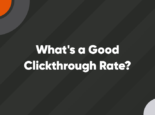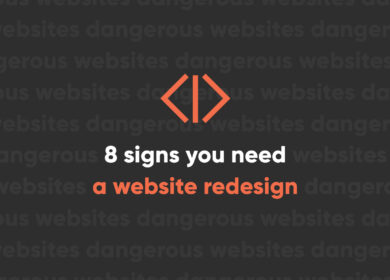
Is Page Speed Really That Important?

The term “page speed” sure sounds like it should be of the utmost importance to pretty much every website out there. But is it? With so much to consider in producing the best possible site, it’s easy to lose some of the finer details in the shuffle. We’re here to provide some insight into what exactly page speed is and why you should be keeping it on your mind on an ongoing basis.
What is page speed?
First things second. Page speed is pretty much what it sounds like – a measurement of how quickly the content on your page loads. It can sometimes be confused with site speed, but there is an important distinction between the two. Site speed is actually the page speed for a sample of page views on your site. Page speed itself can be measured in either “page load time” (the time it takes to fully display content on a specific page) or in “time to first byte” (how long it takes for a browser to receive the first byte of info from the web server). Regardless of how it’s measured, there are a couple of reasons page speed is so important (and keeps getting more important every day).
How important is page speed for SEO?
In 2010, Google announced it would start taking page speed into prime consideration when ranking pages via its algorithm. Then, in 2017, Google let us know it would be placing an even greater emphasis on page speed due mainly to the surge of mobile web browsing. If page speed isn’t a priority on your website, you may find yourself lagging behind your more fleet-of-foot competitors in search rankings. Slow page speed also means search engines can crawl fewer pages using their allocated crawl budget. This has a negative effect on indexation and is another way neglecting page speed can hurt your site.
In July 2018, Google released what it called the "Speed Update," a rare case when Google announced an algorithm update ahead of time. If you recall, the previous major announcement like this was dubbed Mobilegeddon and caused a global panic. There’s a reason the 2018 news wasn't flooded with "Speedageddon" articles. Google downplayed the impact the Speed Update would have on websites. Straight from the horse’s mouth: "The Speed Update...will only affect pages that deliver the slowest experience to users and will only affect a small percentage of queries."
Most recently, in April of 2023, Google dropped page speed from its list of ranking systems, stating that it’s not a direct ranking factor – if only to complicate things further for SEO specialists everywhere!
Throughout all of this change, it’s important to remember that there are many ranking factors that Google uses, but ultimately, Google will favor content that offers a positive page experience. So unless your website is loading like it’s 1999, you shouldn’t notice too much of an impact on the Google side of things. But that doesn’t mean you should downplay it on your website. There are more important reasons to make sure your pages load quickly.
How important is page speed to users?
Page speed matters to Google, but it matters even more to everyone who visits your site. The user experience is massively affected by page speed, and a slowly loading site is likely to drive visitors away. A higher bounce rate, lower average time spent on page, and decrease in conversions are all symptoms of a slow website. People are impatient. Their attention spans are short. According to surveys from Akamai and Gomez.com, almost half of web users expect a website to load within two seconds or less. If not, they tend to abandon the site completely. Don’t expect them to come crawling back as long as your site is loading at a snail’s pace.
How important is page speed to shoppers?
The e-commerce sector should be especially concerned with page speed. Research has shown that 79 percent of online shoppers who experience poor site performance say they won’t return to that site to buy in the future. Around 44 percent of those would tell a friend or family member if they had a poor experience with a website. That means slow page speed not only loses you conversions from the shoppers themselves but also from those they interact with on a regular basis. That’s a wide net.
Walmart.com noted that with every second of increased page speed, they saw a two percent increase in conversion. Way back in 2008, Amazon found every 100 milliseconds cost them 1% in sales. And that was in 2008. Just think about how much more impatient people are today! Another study in 2012 noted that Amazon could lose as much as $1.6 billion if a page loaded one second slower. In other words, there’s a lot of money to be made (or lost) in a very short period of time.
You should care about page speed
The main motivations behind improving page speed are simple – increase your ranking and keep people from leaving your site. That said, there are a lot of components that go into optimizing your page speed and making sure you’re staying ahead of the industry standard. It’s an ongoing process that should be maintained on a regular basis. It’s easy to fall behind. You need an experienced web developer to manage those aspects and ensure your site is running at Usain Bolt levels every second of every day. Anything less is sure to lose you money or followers. Don’t be that website.
How fast should your website be?
Obviously, when it comes to load time, the faster your website is the better. For a positive page experience, your full page should load within two seconds.
SEO audits often flag page speed as an issue on websites, but a great way to test it firsthand is by navigating through your site yourself. Does your site feel fast, or does it take more than a few seconds to navigate from page to page? Put yourself in the user's shoes and think about your browsing experiences. If you aren't noticing slow load times, your audience probably won't either.
Be sure to check your site on different search engines and devices to get a holistic feel for the speed of your website.
You can also check your page speed by navigating to a page you'd like to check out, right-clicking "inspect" on the page, then navigating to either "network" or "performance insights" to get a look at how quickly your page is loading.
Another place where you can check page speed is in Google Search Console. Your Core Web Vitals report can tell you more about site performance as it relates to user experience.
Quick fixes to improve page speed
If your site really is loading slowly and could use some improvements, here are a few ways to fix it:
1. Reduce the number of redirects on your website.
The more times a website has to redirect a user to a different page, the longer the user has to wait through that cycle of redirects. Make the navigation as seamless as possible by cutting out those redirects.
2. Compress large files.
Use a tool that enables compression to minimize the size of files that have to load on your site. If you have multiple large files loading on a page, it can really affect load time.
3. Pay attention to the size of your images.
Don't use images that are larger than needed, and scale down large images whenever possible.
4. Choose a performance-optimizing hosting partner.
Having your website hosted on a fast server can really improve load time.
5. Cache your site.
Caching your site allows the server to save copies of site files and quickly pull the page back up rather than loading it from scratch. Servers can cache your site through your hosting services, but you can also get caching plugins to help.
There are other ways to speed up your website's load time, but many of them require messing with the code or diving into website development. Contact Perrill today for full-service web development that will have your pages flying at Mach 10.





